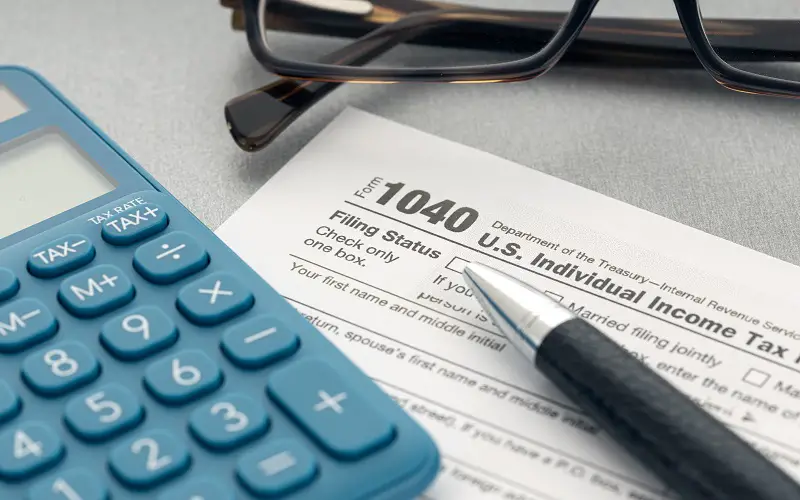By: Gerelyn Terzo of Sharemoney.
With the ushering in of the new year comes something less celebratory: tax season. No two tax years are exactly alike, and last year was no different.
In fact, in 2022, economic stimulus payments, which were a regular thing in years 2020 and 2021, became a thing of the past, resulting in what the IRS warns could be lower refunds in 2023. The tax brackets for ordinary income in 2022 remained the same as in 2021—10%, 12%, 22%, 24%, 32%, 35%, and 37%—but they were altered to factor in inflation, which happens each and every year. Let’s break down some of the nuances that you can expect when you are ready to file this tax season.
1. Tax Loss Harvesting
If you were invested in the stock market or cryptocurrencies in 2022, chances are your portfolio took a hit. The markets were in the doldrums due to several economic headwinds including inflation, high-interest rates, and a looming recession. However, you might be able to make those losses work for you through tax-loss harvesting.
With this technique, you actually offload (sell) the underperforming assets at a loss. However, you can then turn around and use those losses to offset any capital gains you may have experienced from similar assets in the market. You can also use the market losses to offset up to $3,000 of your regular annual income. As a result, you’ll pay less out of your pocket to Uncle Sam while your good investments potentially continue to appreciate in value.
2. Capitalize on Savings Incentives
For the tax year 2022, you could contribute up to $6,000 to an individual retirement account (IRA). If you’re over the age of 50, tack on another $1,000 to that amount. The benefit here is that your IRA contributions have the potential to lower your taxable income, considering you meet the eligibility requirements and take a deduction. Something to look forward to is that for the tax year 2023, the IRA investment threshold rises to $6,500.
If you’ve got a Roth IRA, any contributions aren’t tax deductible, unfortunately. However, qualified withdrawals are tax and penalty-free if you are at least 59 ½ years old and meet exemption requirements. You could also transfer funds into an IRA or Roth IRA, paying taxes on the converted amount. However, as the money grows, you’ll be able to make tax-free withdrawals under the right conditions.
3. Homeowner Tax Breaks
If you are a homeowner and your itemized deductions surpass the IRS’ standard deductions, you could be eligible for thousands of dollars in additional deductions. To figure this out, you need to know the standard deductions for 2022, which you can find here.
Next, consider the types of deductions you qualify for, such as:
- Mortgage Interest
- Home equity loan interest
- Property taxes
- Profits from selling your home
- Home office costs
- Energy-efficient upgrades
If the sum of your combined deductions is higher than the standard deductions, it makes sense to itemize your taxes so you can enjoy the benefits of homeownership to the fullest.
4. Clean Vehicle Credit
If you’re doing your part to shrink your carbon footprint by driving an electric vehicle, you can be rewarded for it. Under the U.S. Inflation Reduction Act, you could be eligible for a tax credit for up to $7,500 in the year that you received delivery of your vehicle. To qualify, the EV must make the government’s list of eligible vehicles and your income can’t surpass a certain threshold, including:
- $300,000 (married couple filing jointly)
- $225,000 (head of household)
- $150,000 (all other filers)
5. Premium Tax Credit
If you’ve signed up for healthcare through the government’s Health Insurance Marketplace, be sure and take advantage of the Premium Tax Credit (PTC). This tax break was recently expanded for tax years 2021 and 2022 through the removal of an income cap. Previously if your income surpassed 400% of the poverty line, you wouldn’t qualify. To take advantage of this, be sure and file Form 8962.
Dates to Remember
The deadline for filing taxes falls on April 18 this year, due to the usual date of April 15 falling on a Saturday. That doesn’t mean you have to wait until then to file. However, if you are falling behind for one reason or another, you can always file an extension. The deadline for filing taxes with the extension is Oct. 16, 2023. Don’t be late!

